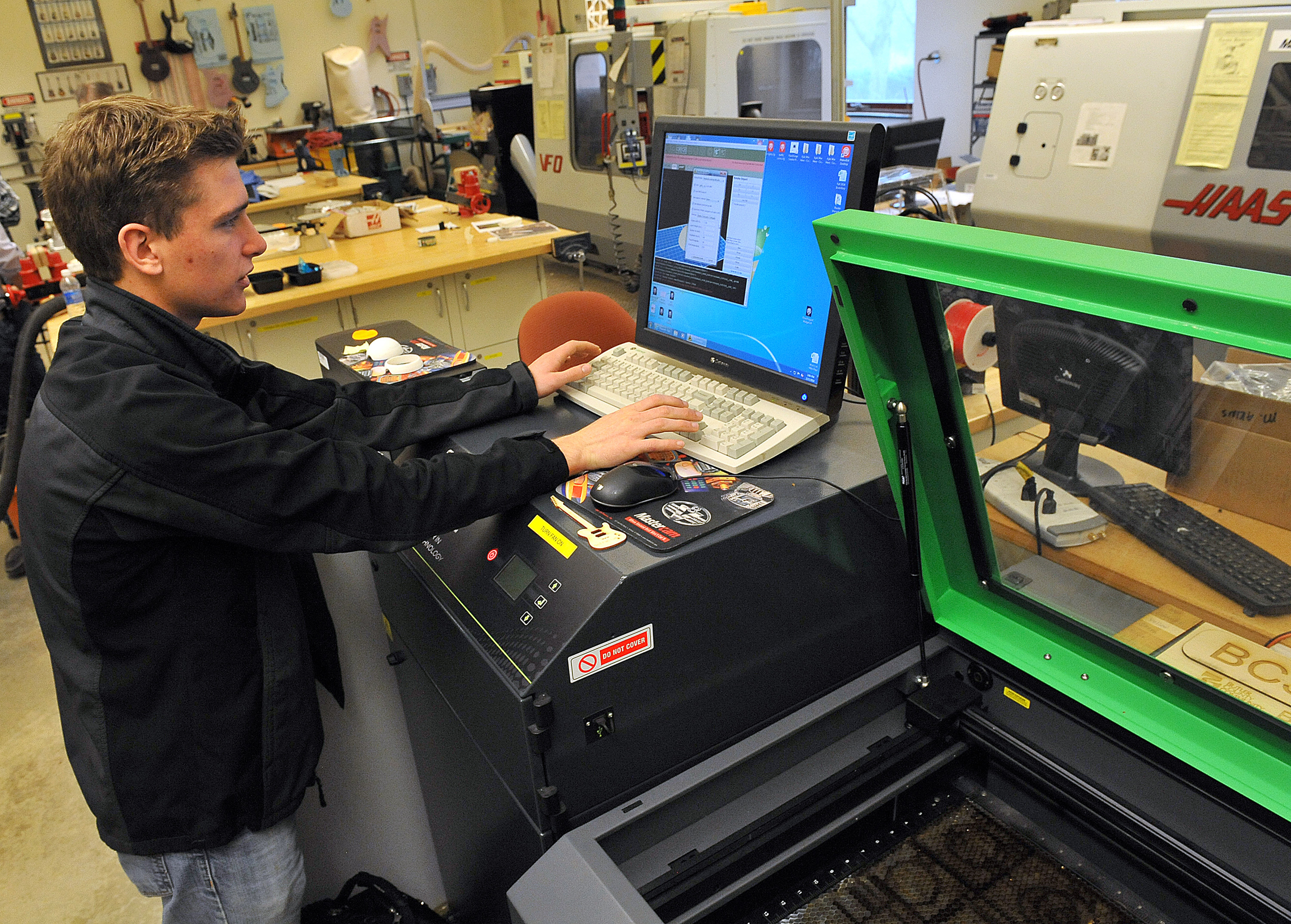Manufacturers Draw in Millennials With New Training Approach



Finding millennials who are interested in manufacturing and have the aptitude for it are two challenges facing manufacturers trying to replace retiring baby boomers. But there’s another: teaching millennials once they find them.
Employers are discovering that the next generation of workers learns differently than they did.
“Millennials like to see results right now,” said Scott Covert, who runs an in-house training program at Penn United Technologies, a tool-and-die shop that employs about 600.
That requires online courses and lots of hands-on work where students learn practical applications of theory.
At Beaver County Community College, which offers a number of manufacturing-related degrees, getting and keeping millennials engaged means using 3-D printers, laser cutters and other equipment that puts a finished product in students’ hands quickly. The products include 3-D printed plastic molds used to make chocolate candies featuring the school’s logo.
“These students are so used to instant gratification. This feeds right into their personality,” said Mike Aikens, a natural science and technology professor. “We have to connect with them. They are digital natives.”
One of the classes Aikens teaches was developed through National Science Foundation grants promoting science, technology, engineering and math, or STEM, skills. The grants fund workshops where teachers learn how to teach other teachers how to incorporate lessons in those subjects into a semester-long class where students make custom-designed electric guitars.
About 2.7 million manufacturing workers are expected to retire in the next eight years or so, according to the Manufacturing Institute, the research arm of the National Association of Manufacturers. While the economy and a lack of retirement savings may persuade some boomers to work a few more years, manufacturers know they will eventually have to replace them.
However, the pool of potential recruits is limited by the mistaken impression that manufacturing means doing dirty jobs in dirty places.
“Advanced manufacturing today is a very high-tech, high-skilled career,” said Neil Ashbaugh, who oversees training at Oberg Industries, a company that produces machined and stamped metal parts.
Ashbaugh, 45, joined Oberg as an apprentice in 1993, knowing that it would take him 42 to 54 months to complete the program. Today, online courses allow apprentices to complete the program at their own pace, Ashbaugh said.
“I still enjoy seminars where I sit and get lectures. The millennials are a little different,” he said.
They include his son, Ian, who is pursuing an associate degree in engineering at Butler Community College.
This semester, Ian Ashbaugh and his classmates designed novelty holders for USB devices, then produced them on the school’s 3-D printer. Some designs didn’t work because they didn’t take into account the space needed to insert the USB device into a port.
Ashbaugh said his son reported that the assignment taught him that while manufacturing creates neat things, “when you get into business, you have to create neat things that work or solve a problem.”
Last year, Penn United started a semester-long program that teaches high-school students basic technical skills through a combination of online learning and hands-on work at the company’s training center. About 70 to 100 students are expected to complete the free course this year, Covert said.
Kennametal, a tool maker, started a high-school-level program three years ago to get students interested in manufacturing careers. About 150 students have completed its semester-long Young Engineers program. Several graduates of the program later accepted internships with the company.
Matt Kovac, dean of Butler County Community Colleges Natural Science and Technology department, said the school’s emphasis on hands-on learning and making things fills a void in millennials’ experience.
Previous generations had plenty of opportunities to learn how to fix or make things, whether it was through Lincoln Log kits or getting help fixing a car from their father or neighbor. Millennials “don’t have the built-in familiarity with fixing things, making things,” he said.
Kovacs wonders if some of the enthusiasm generated when students learn how to make guitars, USB device holders and other things comes from the fact that those kinds of opportunities aren’t as abundant as they were when he was their age.
This article appeared in print in edition of Hamodia.
To Read The Full Story
Are you already a subscriber?
Click "Sign In" to log in!

Become a Web Subscriber
Click “Subscribe” below to begin the process of becoming a new subscriber.

Become a Print + Web Subscriber
Click “Subscribe” below to begin the process of becoming a new subscriber.

Renew Print + Web Subscription
Click “Renew Subscription” below to begin the process of renewing your subscription.





